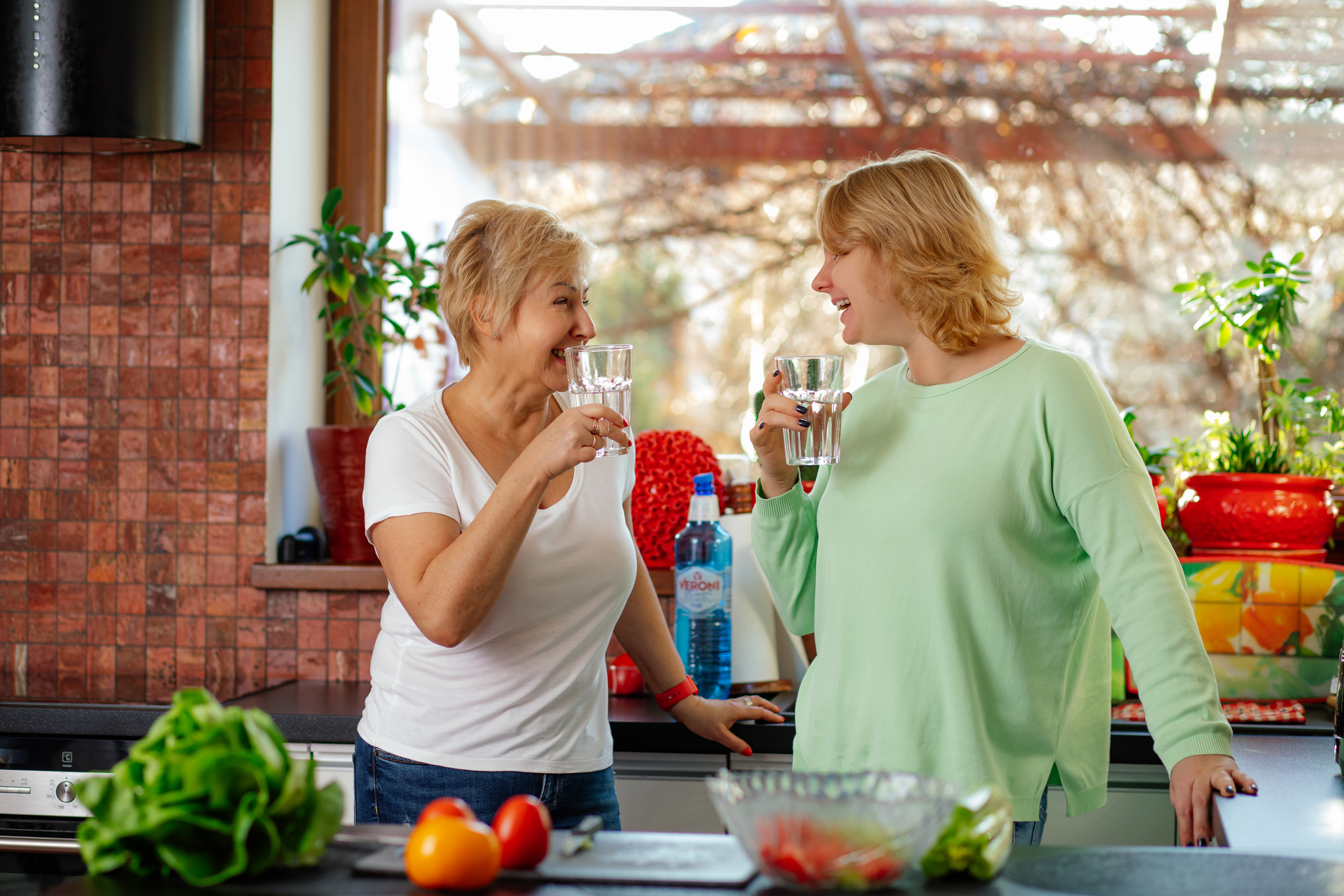To keep our bodies functioning properly, we need to eat a healthy diet, move often, and stay well hydrated. Many older adults struggle to drink the recommended eight glasses of water a day, but new research shows that the hydration we get from certain foods and other beverages may be sufficient when added to our daily water intake. The 8-cup advice dates from a 1945 Food and Nutrition Board recommendation and may have been misinterpreted, not accounting for water intake from other sources.
In a more recent study, as reported by The Washington Post, elderly adults who routinely drank fewer than six glasses of water each day showed no evidence of dehydration. Sipping water, milk, tea, and coffee, or eating fruits and vegetables with a high water content can add up during each day, and is often sufficient to keep seniors properly hydrated without discomfort or too many trips to the bathroom.
Each person’s need for water is unique and depends on several factors including their size, level of body fat, metabolism and how many calories are being burned. People who live in hotter climates and have physically active lives will require more water than those with a sedentary lifestyle living in cooler regions. People with less body fat need more water than those with a higher body fat mass because fat contains less water than muscle and other organs.
Older adults may not feel thirst as acutely as younger people, so it is essential to drink fluids throughout the day or consume water-rich foods like fruits, vegetables, soups, or yogurt. Water is best, but tea and coffee in moderation are fine – and try to avoid sugary drinks like soda or sweetened juices and highly salted meals.
Signs of Dehydration
- Thirst
- Dry skin and mouth
- Less urine output – dark-coloured urine
- Constipation
- Weakness, dizziness or heart palpitations
- Confusion – when dehydrated, older adults can experience delirium
- Kidney or bladder problems (urinary tract infections)
Elderly adults with cognitive decline or dementia may forget to drink throughout the day. Caregivers can gently encourage their love-ones to sip fluids or provide water-rich foods frequently. Watermelon, strawberries, peaches, cucumber, tomatoes, or broths may be more palatable than plain water.






Add Your Voice
0 Comments
Join the Discussion